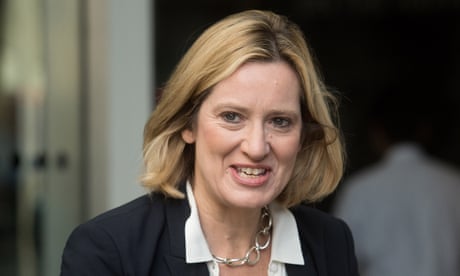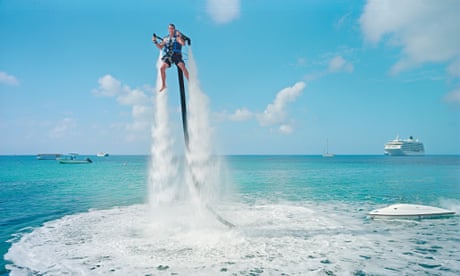Of all my political activities in the European parliament my work on challenging tax-dodging by wealthy individuals and corporations is perhaps the area where the most has been achieved.
Yet as a British MEP it has been a constant source of embarrassment to learn the central role played by the City of London and the UK’s overseas territories in the network of tax havens that facilitate a tiny minority to live beyond tax law.

Amber Rudd facing calls to clarify involvement in tax havens
This was first demonstrated by the Panama Papers and now confirmed by theBahamas leaks. I am left wondering, in post-EU referendum Britain, whether we will see the UK government challenge or collude with this tax-avoidance industry. If the response to the discovery that home secretary Amber Rudd was previously director of two asset-management companies based in the Bahamas is anything to go by, alarm bells should be ringing.
My own attempts to challenge Rudd have led me to believe that rightwing media figures, along with the Conservative government and the banks, are keener to shut down legitimate lines of inquiry on tax dodging than they are to shut down tax havens.
This was most clearly demonstrated to me during an interview with Andrew Neil on the Daily Politics show. Neil defended Rudd’s actions on the grounds there was no proof she had done anything illegal. Yet the whole purpose of tax havens is to allow the wealthy to hide behind a wall of secrecy legally.
Indeed, we only know of Rudd’s past career because of the Bahamas leaks. When asked in interview some months ago if she had money in any offshore trusts, Rudd replied that she didn’t. She also defended David Cameron over his father’s investment fund in the Bahamas that was exposed by the Panama Papers. At least Cameron had the defence that the decision to set up a trust in the Bahamas was taken by his father. It was Rudd’s own decision to become embroiled in two offshore companies in the Bahamas, something she failed to disclose.
Generally, people do not set up companies in the Bahamas to enjoy the subtropical climate. They are more likely drawn there by the fact the islands demand no income, corporate or wealth taxes from individuals investing in offshore companies. No evidence has emerged that Rudd herself or the companies avoided paying tax but at the very least, a fuller statement explaining the purpose of the directorships and whether she personally profited from them seems reasonable.
Unless Rudd makes such a statement it is difficult to see how Theresa May can continue to have confidence in her as home secretary. During her short leadership campaign and on the steps of No 10, May spoke noble words about the need to turn Britain into a country that works for the many, not the few. This is precisely the opposite of what tax havens do. They are a system used by a tiny elite composed of the super-wealthy precisely to avoid contributing their fair share to society.
So is Rudd on the side of the many, whose services have been cut to the bone because of insufficient tax revenues, or is she on the side of the wealthy few who avoid paying taxes?

Follow the money: inside the world's tax havens
Far from being a sideshow, what some are calling Ruddgate goes to the heart of the question of what type of society we want in the wake of the EU referendum. Will we follow the lead taken by Europe in promoting fair taxation, most notably demonstrated in recent weeks by EU competition commissioner Margrethe Vestager, who ordered Apple to pay €13bn in back taxes? Or will we follow the route being pushed by some hard-Brexit supporters and become one of the globe’s leading tax havens? The answer depends on the actions we take now, and whether we have the courage to demand the highest standards of those who govern our country.
The European parliament’s committee investigating the Panama Papers leaks already has the chancellor Philip Hammond, his predecessor Osborne and former prime minister David Cameron on our invitation list. Following the latest revelations, we will be adding the name of the home secretary.
No comments:
Post a Comment